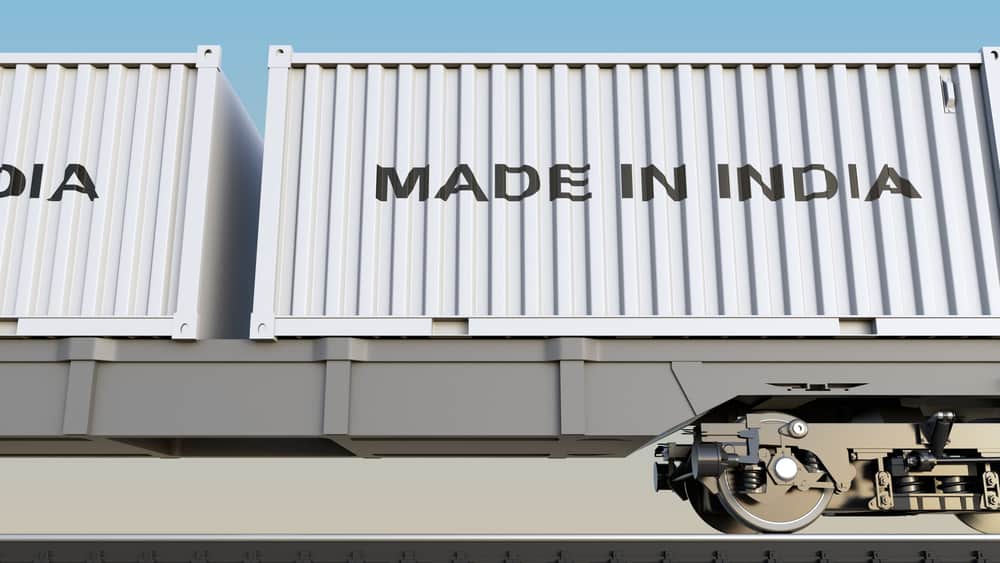Beyond meat: India’s halal industry prepares for major growth as awareness, demand rise
MUMBAI - India has the third-largest Muslim population in the world but it still lacks the level of business ecosystem and awareness needed to achieve the true potential of its halal market.
Despite an estimated $66 billion spent by 180 million Muslims domestically in 2018 on food, pharma, cosmetics, travel, clothing, and recreation and culture, according to data from growth strategy and advisory firm DinarStandard, the country is still considered to have a huge untapped market for halal products.
“[The] halal industry is still in its infancy in India,” Anis Mohammed, Partner, Seahath Canning Company, told Salaam Gateway.
His company is taking part in India’s first major international halal expo in Hyderabad this weekend (January 18-20) to promote canned halal chicken and seafood. Canned seafood, said Mohammed, is still considered a product for the middle- and upper-middle classes, which signals a growth market for the Goa-based company.
“There is a need to create awareness of halal food,” said Mohammed.
“Apart from being a Muslim requirement, [halal food] has a great health angle which needs to be highlighted,” he added.
India’s premier halal certification agency Jamiat Ulama-I-Hind Halal Trust agrees that the biggest challenge is “non-vocalisation” of demand by Indian consumers for authentically halal-certified products.
Until recently, consumers mostly demanded halal certification for meat products only.
“They take for granted that only meat needs to be halal-certified and all other products presumed to be halal,” said Niaz Ahmed Farooqui, Secretary, Jamiat Ulama-I-Hind Halal Trust.
In certain quarters, he added, there is also opposition to halal certification on religious grounds. “But, despite this, the sheer rise in the halal-certified products is slowly taking over these challenges and we feel very bright prospects in the future,” said Farooqui.
At $1.7 billion, India was the fourth largest exporter of food to Muslim-majority countries in 2018, according to the State of the Global Islamic Economy 2019/20 report from DinarStandard. Meat dominates exports.
The country is a major exporter of buffalo meat, and according to Farooqui, almost all slaughterhouses for buffalo, goat and sheep must be halal-certified in order to comply with demands of Muslim-majority countries including Saudi Arabia, UAE, Malaysia, and Indonesia.
India exported $3.6 billion worth of buffalo meat in the last financial year (2018-2019) ending March 31, 2019, down from $4.04 billion the year before, according to official agency APEDA. Vietnam bought up 47.34% (largely seen as a door to China), while 33%, equivalent to $1.2 billion, headed to Malaysia, Indonesia, Iraq, Egypt, Saudi Arabia, and UAE.
There is now a much bigger realisation among India’s suppliers of the need to diversify their halal exports beyond meat, and that journey starts with a shift in the domestic mindset.
“The current halal industry is predominantly linked to the consumption of halal meat only. The awareness within Muslims itself about halal means "meat or poultry only",” said Mohamed Anas, Founder President & CEO at Halal Asia Services.
He feels a lot of awareness needs to be created among Muslims and other communities about halal.
The Chennai-based halal certification body, that is also participating in the halal expo in Hyderabad, provides services in product certification, process certification, training and developing professionals to work in a halal-certified industry in different industrial segments. It is currently the only Indian halal certifier registered with the Emirates Authority for Standardisation and Metrology, according to ESMA's website.
Market observers also say demand for halal-certified products received a push after Islamic countries such as Malaysia and Indonesia started insisting on importing only halal food and cosmetics products from India.
“This compelled hundreds of companies exporting to Malaysian and Indonesian markets to get their products halal-certified,” said Farooqui.
With demand and awareness on the rise, Indian bodies such as Jamiat Ulama started offering halal certifications for other items including cosmetics, pharmaceuticals, chemicals and biochemicals.
“We and a couple of other organisations also had to get international accreditation for halal certification,” said Niaz Ahmed Farooqui, adding that this allowed Indian exporters to get their halal status locally. His organisation is one of three Indian halal certifiers recognised by Malaysia's JAKIM.
Presently, India has a host of leading companies such as Nestle, DS Group, VLCC Cosmetics, Mrs Bectors, and Remidex Pharma that sell and export halal-certified products.
“This indicates the rise of demand for halal products in India as well as globally. This way, they are able to address the demand locally as well as globally,” added Farooqui.
While the growth of India’s domestic and export halal industry is stifled by a number of challenges, industry players, businesses and agencies in the sector are looking to change that trend, with one such initiative being the halal expo in Hyderabad.
The CEO and Director of event organiser ATOBA, Muazzam Naik, calls the three-day event “a meeting point for halal buyers and suppliers between East and West”, expecting over 100 exhibitors, and with a dedicated Turkey Pavilion.
(Reporting by Syed Ameen Kader; Editing by Emmy Abdul Alim [email protected])
© SalaamGateway.com 2020 All Rights Reserved
